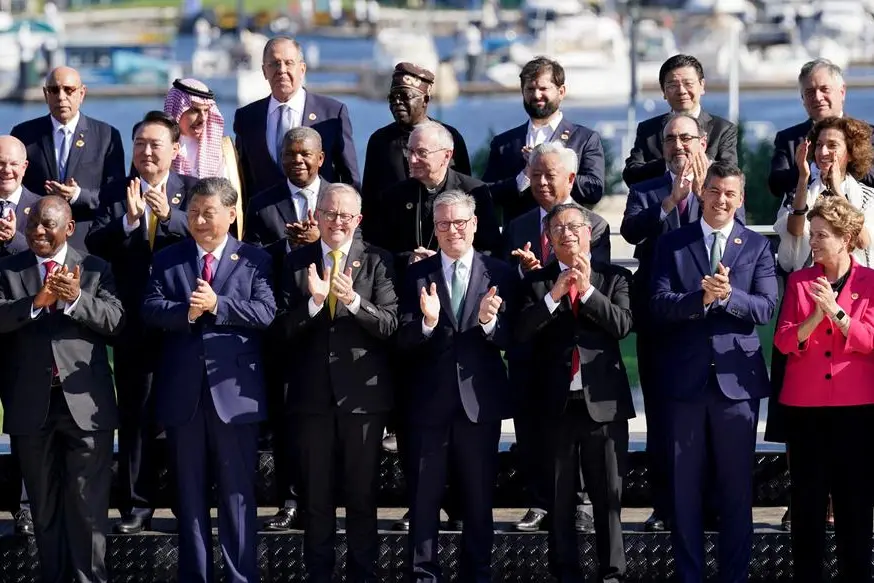PHOTO
Leaders of the Group of 20 major economies meet on Tuesday to discuss sustainable development and the transition to cleaner energy, as they aim to increase the odds of a successful deal to address global warming at U.N. climate talks in Azerbaijan.
The host of the COP29 climate summit a day earlier had made a plea for G20 countries to send a positive signal on the need to tackle climate change and provide clear mandates to help save talks that had bogged down in Baku, Azerbaijan.
With the world on track for its warmest year on record, leaders are trying to shore up a global response to climate change before Donald Trump retakes the U.S. presidency in January. He is reportedly preparing to roll back U.S. policy on global warming and exit the landmark Paris Agreement.
The G20 leaders gathering for a summit in Rio de Janeiro, Brazil, called in a joint statement on Monday for "rapidly and substantially increasing climate finance from billions to trillions from all sources" to respond to global warming.
They also urged COP29 negotiators to reach a deal on a new financial goal for how much money rich nations must provide to poorer developing nations in climate finance, the main sticking point in the climate talks.
"G20 Leaders have sent a clear message to their negotiators at COP29: do not leave Baku without a successful new finance goal. This is in every country's clear interests," U.N. climate chief Simon Stiell said in a statement.
Climate negotiators aim to produce a full draft of a deal for the financial goal by Wednesday evening, said the summit's lead negotiator Yalchin Rafiyev of Azerbaijan.
"We have stepped up the pace," Rafiyev said. "The outcome will only be as good as parties' commitment to help us build solutions."
'VAGUENESS'
While negotiations, slated to conclude on Friday, have yet to coalesce around a specific number, economists suggest the goal should be at least $1 trillion annually.
The G20 statement said nations need to break the impasse on finance, but they did not give clear guidance on a solution. Some activists called the G20 statement weak on climate finance.
"This vagueness of the G20 declaration risks undermining trust in the negotiations, as the G20's influence is crucial for bridging the divides between developed and developing nations," said long-time activist Oscar Soria, head of The Common Initiative, an environmental think tank.
Developed countries, including in Europe, argue that more countries need to contribute funding for efforts to tackle climate change, including wealthier developing nations such as China and oil-rich Middle Eastern states order to reach an ambitious target.
Developing countries such as G20 host Brazil have pushed back on calls for obligatory contributions from anyone but developed countries, the main culprits for causing climate change.
G20 nations are seen as vital to shaping the response to global warming, as they control 85% of the world economy and are also responsible for more than three-quarters of climate-warming emissions.
The G20 also committed to agreeing on a legally binding treaty to limit plastic pollution by the end of 2024, with talks resuming next week to hammer out a deal two years in the making.
(Reporting by Jake Spring, Lisandra Paraguassu and Eduardo Baptista in Rio de Janeiro, William James, Kate Abnett, Karin Strohecker and Valerie Volcovici in Baku Editing by Brad Haynes, Anthony Boadle, Stephen Coates and Gareth Jones)





















